Developed in collaboration with Holcim, the initiative hopes to provide sustainable and resilient homes for low-income or displaced communities
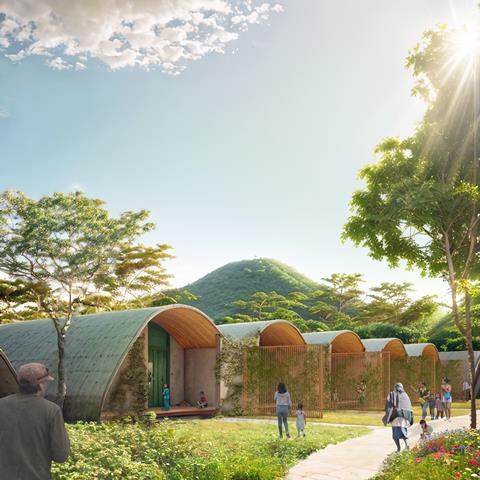
The Norman Foster Foundation, following the launch of its Essential Homes Research Project, presented a scalable housing prototype at this year’s Royal Academy Summer Exhibition.
Developed with building materials company, Holcim, the project’s ambition from the outset was to utilise sustainable housing techniques and materials to provide safety, comfort and wellbeing for low-income or displaced communities.
Norman Foster, president at Norman Foster Foundation, explained: “This project grew out of a workshop organised by the Norman Foster Foundation for young graduates devoted to the issues of refugee housing. Realising that a family can spend up to nearly two decades living in a tent, the scholars posed a challenge – could a more durable, permanent and dignified home be built in a few days that would be economically viable and sustainable?
“The Foundations project team, with the support of Holcim, met this challenge with a prototype home unveiled at the 2023 Venice Biennale. This has now evolved into a row house version, offering higher standards for ultra-low-cost housing,” added Foster.
The new prototype has been developed for rollout in Latin America in 2025, following an in-depth study of local housing conditions and the environment.
The model has evolved and adapted to the local needs, with a community-oriented urban plan and car-free communal green spaces to create a strong sense of community. The project also includes seismic resistance, high waterproofing, humidity prevention, and a minimum of 42 sq m interior space – including two separate bedrooms, one shared space (living room/kitchen), and a bathroom.
Material choices were in line with the team’s commitment to low-carbon, circular design. ECOPact low-carbon concrete comprises the slabs on which the homes will be built, ECOPlanet low-carbon cement is used for both internal partitions and in the external panels, while a custom concrete mix is used in the prefabricated roof panels.
The exhibition prototype is for real-world use, and following the construction of the first units, a detailed analysis of the CO2 footprint will be possible.
At the exhibition, Holcim and the Norman Foster Foundation will showcase sketches of the Essential Homes concept alongside physical models of the initial model and the updated prototype.
The Royal Academy Summer Exhibition is the world’s oldest open submission exhibition, held annually since 1769. It will remain open to the public until 18 August 2024.









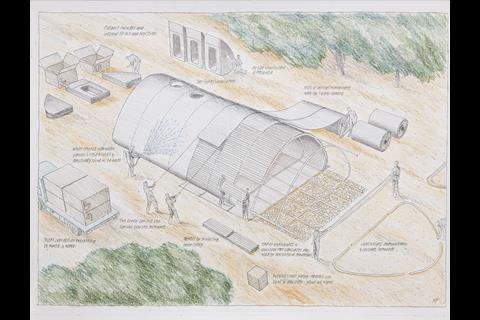
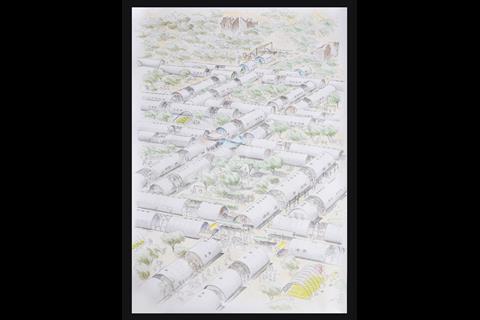
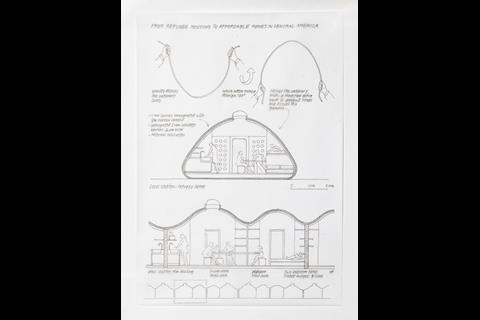
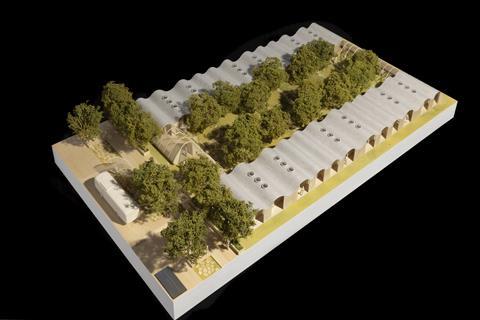
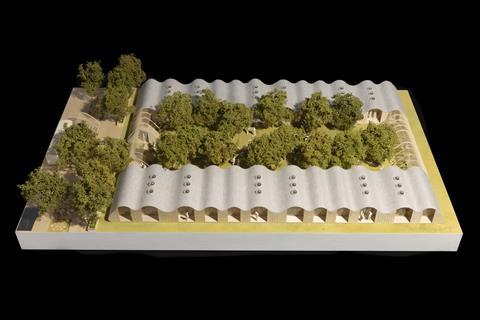
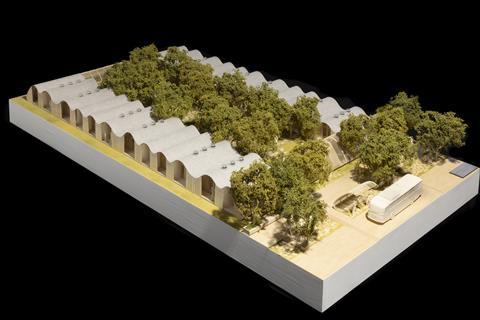







No comments yet